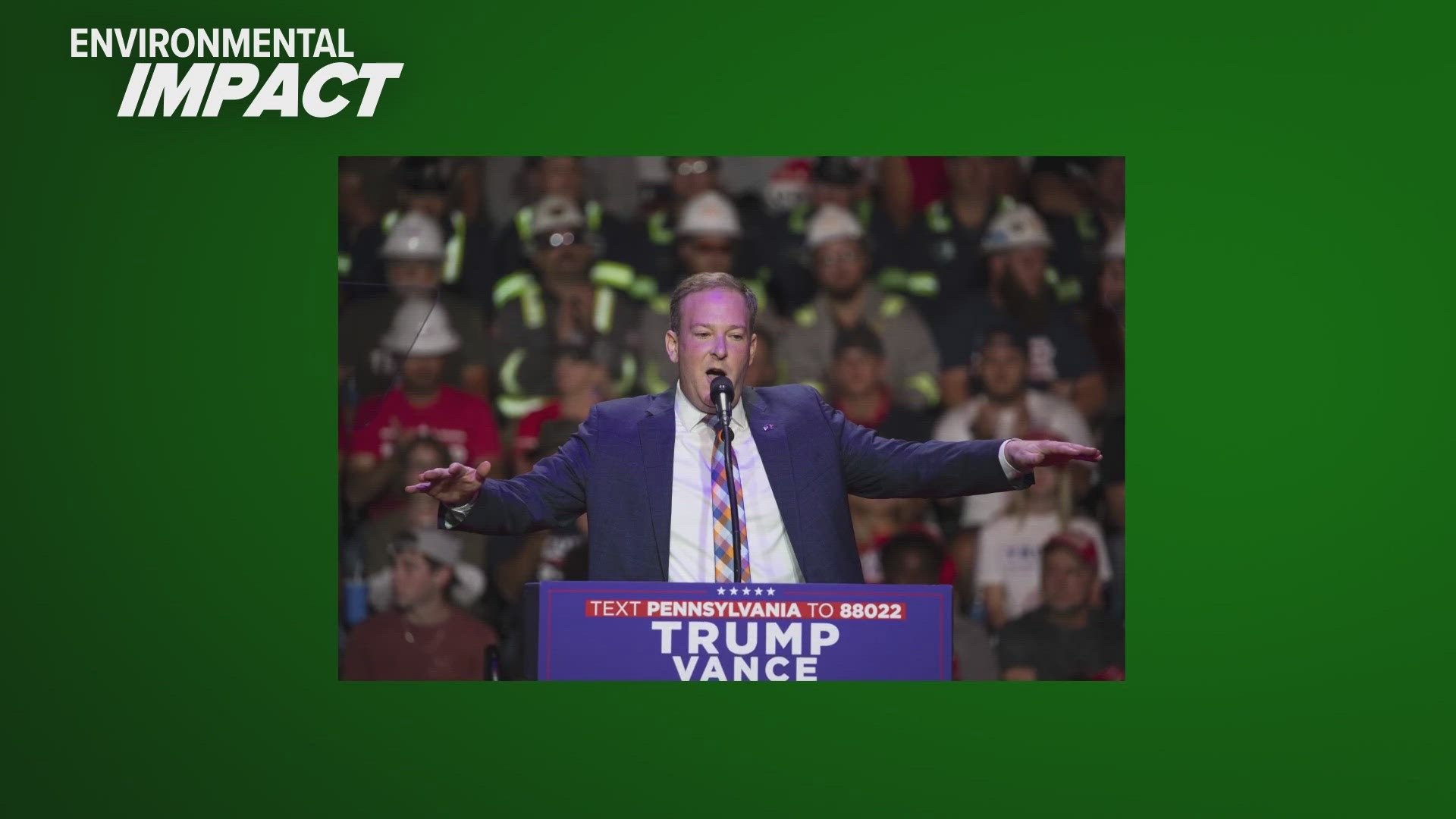ANNAPOLIS, Md. — Former New York Rep. Lee Zeldin has been nominated to head the U.S. Environmental Protection Agency (EPA), a decision that has environmental leaders in the Chesapeake region considering new strategies for dealing with the incoming administration and its priorities, according to Kim Coble, the Executive Director of the Maryland League of Conservation Voters.
"As most people who care about the environment, we are concerned," said Kim Coble, Executive Director of the Maryland League of Conservation Voters.
Coble said she will be looking for common ground by working to demonstrate that environmental protection is frequently good for the economy in the Chesapeake region.
“There is no doubt about the link between clean water and shoreline stabilization and economics," Coble pointed out.
"So one could say, 'the Trump administration doesn't prioritize the environment in a way that we would hope it would.' But if you look at the actions and say, 'these actions will protect the economy of our states around the Chesapeake,' then it becomes a better talking point with the Trump administration. We're hoping that that will be a key foothold in our conversations with them moving forward."
Zeldin is a staunch conservative with a track record of supporting fossil fuel development. He has vowed to reduce federal regulations on industry while simultaneously promising to protect the environment.
His nomination comes at a time when the House and Senate are controlled by Republicans, setting the stage for a more industry-friendly approach to environmental policy.
"I will restore U.S. energy dominance, revitalize our auto industry, and position America as a global leader in AI, all while ensuring clean air and water for our citizens," Zeldin tweeted following his nomination. His remarks have raised alarm among environmental advocates, especially given his history of supporting policies that favor increased energy production and deregulation.
But Zeldin’s record also includes support for the restoration of Long Island Sound in his home region. He is also regarded as knowledgeable on climate issues, especially since he represents a coastal area vulnerable to flooding and rising sea levels.
In the Chesapeake region, there are fresh memories of the first Trump administration's repeated attempts to slash federal funding for critical environmental programs, including the decades-long cleanup of the Chesapeake Bay, which was threatened with a 90% funding cut.
At the time, Congress blocked the cuts.
Despite concerns, Coble said that there are areas of overlap where economic growth and environmental protection can coexist. She pointed to the importance of shoreline stabilization, and efforts to revitalize waterfronts in the D.C. region, as an example of how environmental policies can also boost local economies.
Coble noted that waterfront development on the Anacostia and Potomac waterfronts in D.C. have benefited from cleanup efforts in the waterways.
The League of Conservation Voters gave Zeldin a score of 17 on a scale to 100 for his record on environmental protection during his time in Congress.
"We're looking forward to helping him raise his score," Coble said.
Other figures in Trump's orbit could be environmental "wild cards" that could serve as a counterbalance in his upcoming administration.
Elon Musk, through Tesla, is deeply invested in electric vehicles and clean energy solutions.
Environmental activist and Riverkeeper movement stalwart Robert F. Kennedy Jr. is a prominent voice advocating for stronger protections for waterways and food production.

